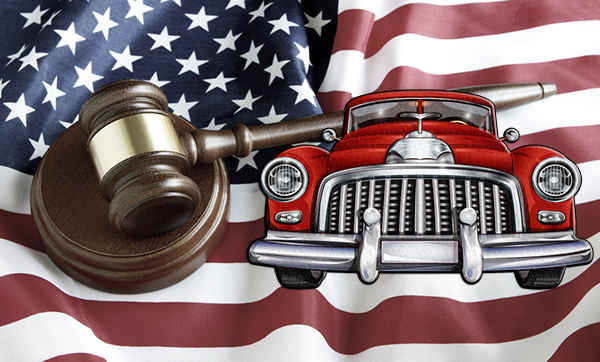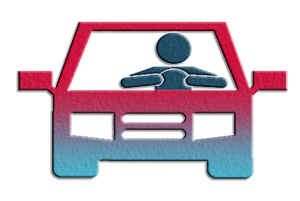Dealership sold me a bad used car what can i do Oklahoma?
When dealing with a situation where a dealership has sold you a bad used car in Oklahoma, it’s crucial to understand your rights and the steps you can take to address the issue effectively.

Here’s a detailed response structured into sections for clarity:
Steps to Take
Review the Purchase Agreement and Documentation
Gather all documents related to the purchase, including the sales contract, warranty information (if any), and any communications with the dealership.
Document Issues with the Car
Make a detailed list of all problems and issues with the car. Take photographs or videos if possible to document the condition.
Contact the Dealership
Notify the dealership immediately about the issues you’ve discovered. Document all conversations and correspondence with them.
Request Repairs or Refund
Depending on Oklahoma law, you may have the right to request repairs or a refund within a certain period if the car is defective. State your request clearly to the dealership in writing.
Consult with a Consumer Protection Attorney
If the dealership refuses to cooperate or if you believe your rights are being violated, consider consulting with a consumer protection attorney who specializes in automotive issues.
File a Complaint
You can file a complaint with the Oklahoma Attorney General’s office or relevant consumer protection agency if you believe the dealership has engaged in unfair or deceptive practices.
Interesting Facts

Lemon Laws:
Each state, including Oklahoma, has its own “lemon law” provisions that protect consumers who purchase defective vehicles. These laws vary, but generally, they provide remedies if a vehicle has substantial defects that aren’t repaired within a reasonable number of attempts.
Used Car Sales Regulations:
Oklahoma’s Used Motor Vehicle and Parts Commission oversees the regulation of used car sales in the state, ensuring dealerships comply with legal requirements regarding disclosures and vehicle conditions.
Consumer Rights:
Consumers in Oklahoma have rights under both state and federal law, example: the Magnuson-Moss Warranty Act, which provides protections against deceptive warranty practices.
Why This Response Is Appropriate

This structured approach ensures that you systematically address the issue of purchasing a bad used car from a dealership in Oklahoma. It covers legal steps, consumer rights, and resources available to help resolve the situation effectively.
Following these steps can potentially lead to a resolution where you receive compensation, repairs, or a replacement vehicle in accordance with the law.
Real-Life Stories of Bad Used Car Purchases

- Story 1: The Case of the Hidden Frame Damage
Background: John, a resident of Tulsa, Oklahoma, purchased a used car from a local dealership. The car looked pristine and drove well during the test drive.
Issue: A few weeks after the purchase, John noticed unusual noises coming from the car. He took it to a mechanic, who discovered significant frame damage that had been concealed with cosmetic repairs.
Steps Taken:
Review Documentation: John reviewed his purchase agreement and found no disclosure of any major accidents or frame damage.
Contact Dealership: He contacted the dealership, but they denied any wrongdoing, claiming they were unaware of the damage.
Request Repairs: John formally requested that the dealership either repair the frame or provide a refund. The dealership refused.
Consult Attorney: John consulted with a consumer protection attorney who advised him to file a complaint with the Oklahoma Used Motor Vehicle and Parts Commission.
File Complaint: John filed a complaint, providing evidence of the undisclosed damage.
Outcome: The Commission investigated and found that the dealership had indeed sold the car without disclosing the damage. John received a partial refund and the dealership was fined for their deceptive practices.

- Story 2: The Mysterious Check Engine Light
Background: Sarah, a college student in Norman, Oklahoma, bought a used car to commute to her classes. The dealership assured her the car was in excellent condition.
Issue: A month later, the check engine light came on. Sarah took the car to a mechanic who diagnosed multiple issues, including a faulty transmission that would be costly to repair.
Steps Taken:
Document Issues: Sarah documented all the issues and obtained a detailed report from her mechanic.
Contact Dealership: She contacted the dealership, but they claimed the issues were wear and tear, not covered by any implied warranty.
Request Refund: Sarah formally requested a refund or replacement, which the dealership refused.
Seek Legal Advice: Sarah sought help from a consumer protection attorney, who advised her on her rights under the Oklahoma Lemon Law and the Magnuson-Moss Warranty Act.
File Complaint: She filed a complaint with the Oklahoma Attorney General’s office.
Outcome: After mediation facilitated by the Attorney General’s office, the dealership agreed to cover the repair costs. Sarah’s persistence and knowledge of her rights led to a satisfactory resolution.
- Story 3: The Underwater Warranty
Background: Mike from Oklahoma City bought a used car with an extended warranty from a dealership. The dealer assured him the warranty would cover any major repairs.
Issue: When the car’s engine failed six months later, the warranty company denied the claim, stating that the issues were pre-existing and not covered.
Steps Taken:
Review Warranty: Mike reviewed the warranty terms and found that the dealership had misrepresented the coverage.
Contact Dealership and Warranty Company: He contacted both the dealership and the warranty company, but neither took responsibility.
Legal Action: Mike hired a consumer protection lawyer to help him sue the dealership for misrepresentation and the warranty company for bad faith denial.
Media Attention: To raise awareness, Mike shared his story with a local news station, which brought public attention to his case.
Outcome: Facing legal pressure and negative publicity, the dealership settled with Mike, reimbursing him for the car and associated legal fees. The warranty company also agreed to cover the repair costs under the scrutiny of the legal system.
Why These Stories Matter

These real-life stories illustrate the importance of understanding consumer rights and taking appropriate action when faced with a bad used car purchase. They highlight common issues – example: undisclosed damage, deceptive warranties, and the refusal of dealerships to honor their obligations.
By following the steps outlined and seeking legal advice when necessary, consumers can protect themselves and potentially achieve favorable outcomes.












